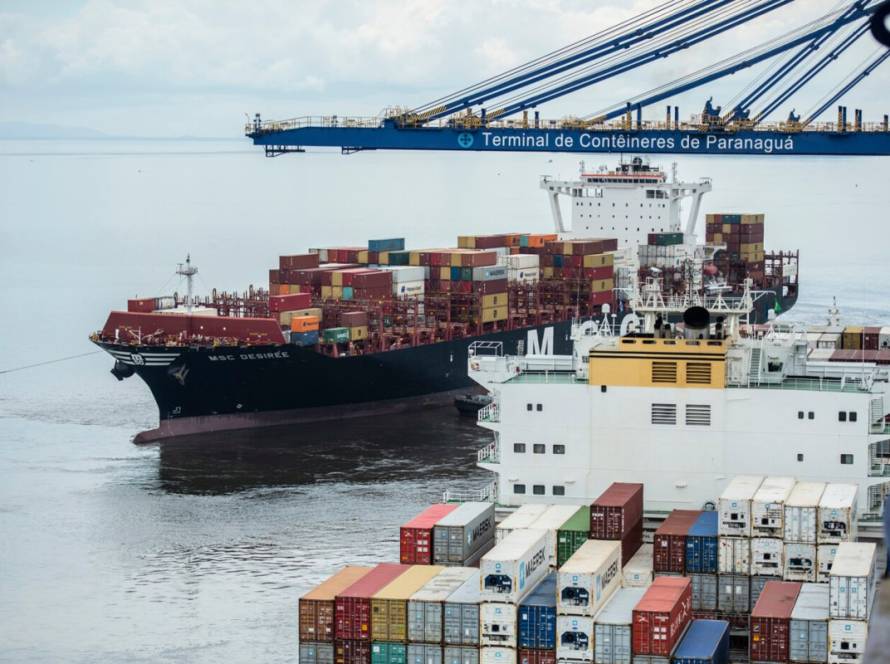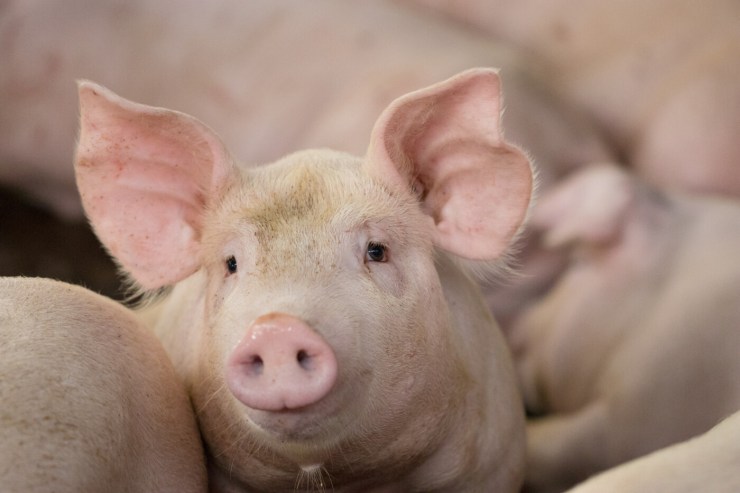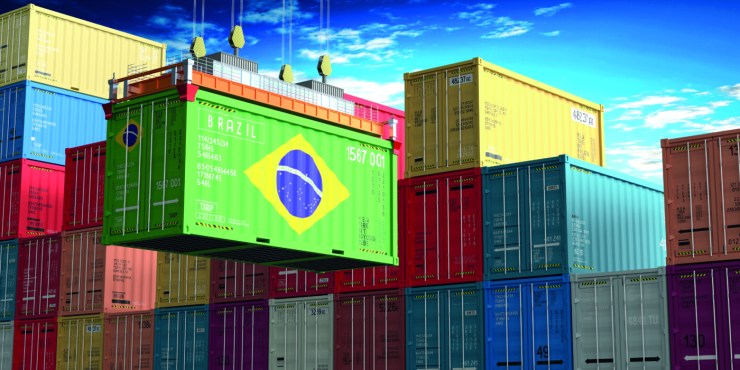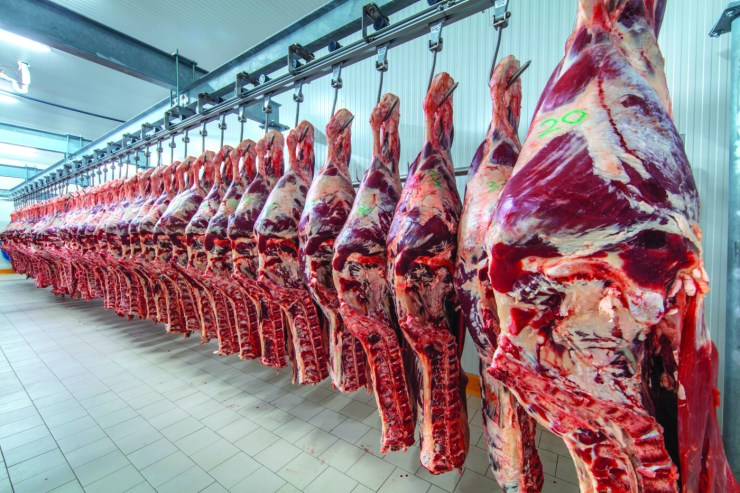With the aim of discussing the tariffs imposed by the United States on Brazil and outlining strategies for emergency measures in the face of the trade crisis, Governor Ronaldo Caiado led, last Tuesday (22), a meeting with businesspeople from various sectors in the state of Goiás to present the possibilities of credit to the business community to minimize the financial impacts resulting from North American tariffs.
Caiado detailed to the Goiás business community the three resource funds that can be used to support affected companies. The first is the Credit Fund, a new credit line created by the Goiás State Government to support the 18 segments of the Goiás economy that export the most to the United States. This line of credit provides R$$ 314 million in ICMS credits and an additional R$$ 314 million from financial market supporters willing to contribute to this fund. The proposal will be officially presented at an auction on the B3 Stock Exchange in São Paulo on August 5th. The interest rate of the new measure will be R$10% per year, at least three percentage points lower than the lines subsidized by federal programs such as BNDES, Plano Safra, and constitutional funds.

Amid the trade crisis between Brazil and the United States, Caiado promotes the first official meeting after the formation of a working group composed of representatives from the Goiás government and the productive sector – Photos: Lucas Diener and Cristiano Borges
The other option presented by the governor is to use the Entrepreneur Equalization Fund (Fundeq), a public financial fund linked to Goiás Fomento, created in 2020 during the COVID-19 pandemic to provide financial resources to subsidize the payment of charges on credit operations. The third alternative is to use the Goiás State Economic Stabilization Fund, a financial reserve that can be used in times of economic crisis to ensure the continuity of essential services.
Representing the business community, the presidents of Goiás' trade associations endorsed the Goiás State Government's proposals, congratulating Caiado for his initiative and agility in finding solutions to the problem. Flávio Rassi, vice president of the Federation of Industries of the State of Goiás (FIEG), commented that "the tool presented is impressive and very important to have a governor who thinks ahead of the curve." Paulo Afonso Ferreira, vice president of the National Confederation of Industry (CNI) for the Central-West region, emphasized that "Goiás is the first state to discuss how to address this situation and is leading the way."
Former president of the Brazilian Association for Sustainable Regional Development (Adial), Zé Garrote, congratulated the swift and effective initiative. "It's an innovation that opens up opportunities and gives us new perspectives and ways of negotiating and pursuing markets," he stated. Clodoaldo Calegari, president of Aprosoja Goiás, commented that he appreciated the state administration's stance. "We consider this a courageous decision by the Goiás government, moving ahead of other states," he said.
Measures
Caiado emphasized that the business sector has always been a partner of the government and is an important player in the advances achieved under the administration, which have solidified Goiás as a benchmark in liquidity, education, healthcare, security, and social programs. "If today we have an increasingly industrialized and modern state, it's thanks to you. Our goal is to restore the peace of mind of workers and business owners," said Caiado, explaining that the purpose of the meeting is to bring together professional associations and authorities to jointly seek solutions to this challenge.
Companies interested in these solutions must complete the process with the General Secretariat of the Government (SGG), and in return, they must commit to maintaining jobs during the period of access to credit. The goal is to protect the local economy from the impacts of 50% surcharges on commodities such as soybeans, meat, and steel derivatives. According to the Mauro Borges Institute (IMB), the funds will be allocated to new investments and expansion of production capacity, but can also be used as working capital to keep businesses afloat during periods of declining sales. The economic activities covered include mineral production and processing, the agricultural sector (such as coffee, cotton, and soybean cultivation), the food industry, scientific research, and cattle farming, among others.
Committee

The productive sector attended the meeting with the governor of Goiás in large numbers
The Goiás State Government has also created a committee to ensure daily and ongoing contact with business leaders so that, together with the state administration, they can seek solutions and define actions to minimize the impact of the imposed tariffs. *The first meetings with the Pharmaceutical and Healthcare; Meat, Derivatives, and Fisheries; Mining; Sugar and Energy; Soybean and Citrus; and Tanning sectors will be held this Wednesday and Thursday (23rd and 24th)* to understand the specific demands of each area and align the actions of each government department to assist the business community.
Adriano da Rocha Lima, head of the SGG, explained how the committee will work. "The governing council, comprised of six departments and which currently authorizes supplementary budgets in Goiás, will be responsible for defining precisely which strategic areas should receive this funding through this fund, always in a way that preserves the state's development, safeguards jobs, and avoids the impacts of these US tariffs," he explained. The Secretariat of Economy will be responsible for validating accumulated ICMS credits and authorizing the transfer of funds between taxpayers, ensuring the fiscal regularity of the operation. These funds are expected to be released starting August 6th.
Trade balance
The United States is currently the second-largest destination for Goiás exports, behind China. From January to June of this year alone, the state traded US$1,500,000 worth of products, with highlights including meat (6,11,000 TP4T) and cast iron, iron, and steel (1,11,000 TP4T). In the same period, Goiás purchased US$1,500,000 worth of American products, primarily machinery and mechanical instruments (3,81,000 TP4T) and pharmaceuticals (2,91,000 TP4T).





